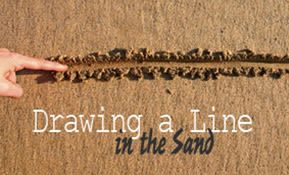
Lech Lecha: Who Wants Cake Anyway?
“Easy Street” doesn't exist in a Jewish neighborhood. … challenges and tests are not only normal, but necessary in leading a life of growth...

“It will be easy. You are going to a place where everyone will agree with you.” Before I left for Israel two years ago, everyone who did not agree with me ended our conversations with that sentiment. By the time I finished college, I was a right-wing weirdo, who actually believed that the Torah is true. I thought that once I arrived in Jerusalem, life would be a piece of cake.
But was I wrong! Life in Jerusalem challenged me in ways that I had never imagined. I was thrown into a world of Jewish thought in a language that I did not understand, and I began struggling to build myself in ways that I had never dreamed possible. Thank God, although I am now happily married and beginning to adjust in my surroundings, life remains challenging. “Easy Street” doesn't exist in a Jewish neighborhood. This week’s parsha teaches us that challenges and tests are not only normal, but necessary in leading a life of growth and maturity.
Parshat Lech Lecha focuses on Avraham (Abraham), one of the greatest and most influential men of all time. During Avraham’s lifetime, there was a massive shift in mankind's spirituality. Initially, all of humanity had an equal share in the Divine mission. Everyone on earth was supposed to receive the Torah. Yet the first two thousand years of creation were full of idolatry, murder, and theft. Though many people had the potential to become great tzaddikim, no one rose to the challenge of bringing holiness into the world. Only Avraham actualized his potential to become a very holy person, and as a result, his children were blessed with receiving the Torah.
Avraham’s journey to greatness started out as follows: “Go for yourself from your land, from your relatives, and from your father’s house to the land that I will show you. And I will make you a great nation; I will bless you, and make your name great, and you shall be a blessing" (Bereishit 12:1).
What was the secret of Avraham’s success? His home in Charan wasn’t ideal; Hashem commanded him to leave it and travel to Canaan. Initially, he had no great wealth, and the Torah doesn’t mention that he went to a prestigious university. Avraham was a self-made man; his rise to greatness was based on his ability to overcome ten difficult tests. His success in these ordeals is an inspiration for us that we, too, can be great, while the challenges he faced serve as the archetype for the dilemmas we deal with today.
But let’s be honest. Who really wants a challenge? Challenge does not fit in with today’s lifestyle. Modern technology ensures that more can be accomplished faster than ever before with little effort or diligence. Yet the basic needs of mankind remain the same. We long to be happy, to get the most out of life, and to feel accomplished. Unfortunately, they haven’t come up with a coffee maker advanced enough to fill these basic human needs, but the advertising companies won’t admit to that!
Avraham’s test is introduced with the phrase “Lech-Lecha” which translates as “Go to yourself.” Rashi explains that the seemingly strange word structure. “Go to yourself: Go for your own benefit and for your own good.” Today, when undertaking challenges is less appealing than ever, we need Rashi to tell us (and Avraham) that the trials we face, despite their difficulty, are entirely for our benefit.
Avraham’s challenge is the archetype of the dilemmas faced by Jews everywhere. Avraham was challenged with ten tests. What was the first one? Clearly it wasn’t having to move to a new city. If it was, it wouldn’t have been much of a test, since God promised Avraham success once he reached Canaan. Who wouldn’t change address if promised children, wealth, and honor, and by none other than Hashem Himself?
Rabbi Moshe Feinstein explains that Avraham’s trial was of a non-physical nature. First, God tested Avraham’s rationality. Since Avraham recognized God’s greatness, he knew that God is not inhibited by location. God could give children, wealth, and repute to anyone, anywhere. If it was God’s will that Avraham have children, why move to Canaan? The people of Canaan were even more immoral than those living in Charan. Surely it would make sense for Avraham to raise his progeny in the best possible environment.
God also tested Avraham’s middot (character traits). Our forefather was the kindest man who ever lived. By leaving his homeland, he would cause pain to those family members he would leave behind. Why would God, the greatest Source of kindness, ask Avraham to do something that would cause someone else pain?
By leaving Charan, Avraham had to subdue both his logic and his middot, and simply do what God commanded him to do. That was his test. And that, in one form or another, is the nature of the dilemmas in our lives as well.
A mitzvah is a commandment from God, and we are obligated to obey, even if the mitzvah appears illogical. Rabbi Akiva Tatz explains that when one is confronted by a difficult mitzvah, he is immediately confronted by his yetzer hara, which says, “Don’t tell me what to do!” The ego, the root of personality, refuses to be subdued. Therefore, in order to fulfill the mitzvah, one must overcome this inner resistance. This is the secret to inner growth. Self control is at the heart of all personal growth and it is developed by the discipline required to obey God’s rules. To pass this test, Avraham needed to suppress his rationality, and exercise total faith in God.
Seichel (intellect or reason) and emuna (faith or trust) are dependent upon one another. We need both intellect and faith to function in the world. Blind faith is not rooted in fact. A person with blind faith can believe in whatever he wants, and his belief has no bearing on reality. Our seichel allows us to comprehend reality based on empirical evidence. It is our task to seek out the truth.
But pure logic is also antithetical to Torah, as it denies the existence of God, since pure logic makes the person into the ultimate judge of good and bad or truth and falsehood, and therefore does not recognize that our human perspective is limited. Only God can see the entire picture.
Seichel and emuna are stepping stones to growth. Rebbe Nachman says that if you search for the truth with complete honesty, you will eventually realize that you must have emuna. The will of God and spirituality is, by nature, above our rational faculties. “Reason will not help here. You need faith that is strong and total" (Likutey Etzot, 1:4).
Hashem tested Avraham’s emuna by asking him to do something that seemed opposed to rationality. When Avraham chose to act according to God’s will, he subjugated himself, and showed ultimate trust in God.
God didn’t need Avraham to move to Canaan in order to shower him with blessings. The Ramban explains that the test is strictly for the benefit of the person being challenged. Based on our free choice, we must find the strength and wisdom to choose correctly. If we do, we actualize or potential, and this means we have grown. In the Heavenly court of judgment, action is greater than potential because we are rewarded for what we did rather than what we were capable of doing.
In our own lives, turbulence, frustrations, and tests are commonplace. These dilemmas help us subjugate our yetzer hara, which in turn strengthens our self control, and builds us as people. The tests become increasingly difficult as we grow. This allows us to be continually pushed to new heights.
Life is not a piece of cake. We have an important mission. We are charged with developing ourselves into a reflection of the Divine Image. But who wants cake anyway? There are many more things in life that offer longer lasting pleasure without causing an expanding waistline. We should strive to approach all of our tests with unwavering strength and dedication like our forefather Avraham. And may we, like him, bring tremendous light into the world.











